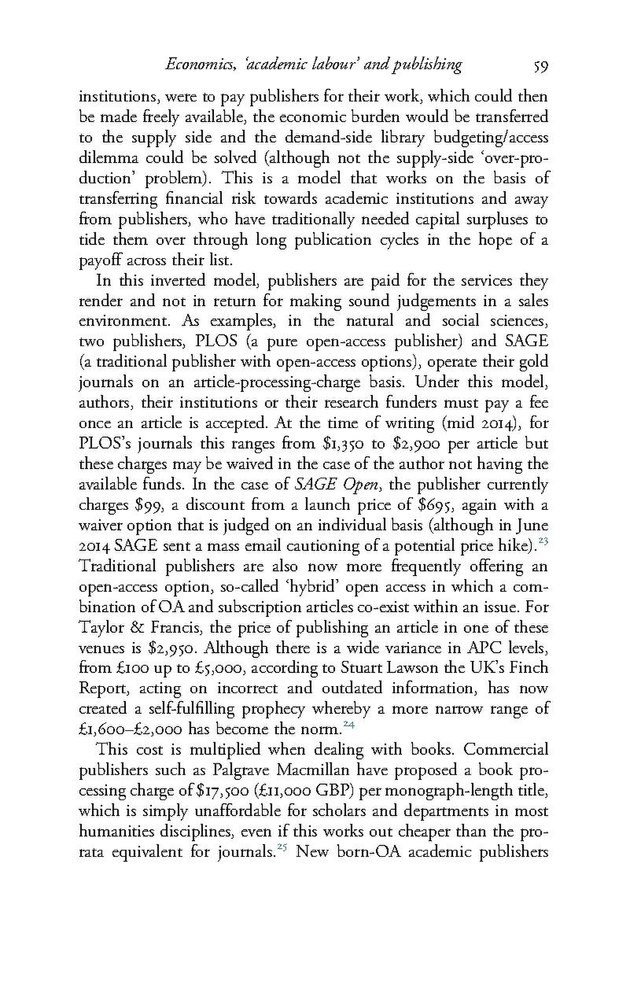institutions, were to pay publishers for their work, which could then be made freely available, the economic burden would be transferred to the supply side and the demand-side library budgeting/access dilemma could be solved (although not the supply-side ‘over-production’ problem). This is a model that works on the basis of transferring financial risk towards academic institutions and away from publishers, who have traditionally needed capital surpluses to tide them over through long publication cycles in the hope of a payoff across their list.
In this inverted model, publishers are paid for the services they render and not in return for making sound judgements in a sales environment. As examples, in the natural and social sciences, two publishers, PLOS (a pure open-access publisher) and SAGE (a traditional publisher with open-access options), operate their gold journals on an article-processing-charge basis. Under this model, authors, their institutions or their research funders must pay a fee once an article is accepted. At the time of writing (mid 2014), for PLOS’s journals this ranges from $1,350 to $2,900 per article but these charges may be waived in the case of the author not having the available funds. In the case of SAGE Open, the publisher currently charges $99, a discount from a launch price of $695, again with a waiver option that is judged on an individual basis (although in June 2014 SAGE sent a mass email cautioning of a potential price hike).23 Traditional publishers are also now more frequently offering an open-access option, so-called ‘hybrid’ open access in which a combination of OA and subscription articles co-exist within an issue. For Taylor & Francis, the price of publishing an article in one of these venues is $2,950. Although there is a wide variance in APC levels, from £100 up to £5,000, according to Stuart Lawson the UK’s Finch Report, acting on incorrect and outdated information, has now created a self-fulfilling prophecy whereby a more narrow range of £1,600–£2,000 has become the norm.24
This cost is multiplied when dealing with books. Commercial publishers such as Palgrave Macmillan have proposed a book processing charge of $17,500 (£11,000 GBP) per monograph-length title, which is simply unaffordable for scholars and departments in most humanities disciplines, even if this works out cheaper than the prorata equivalent for journals.25 New born-OA academic publishers
